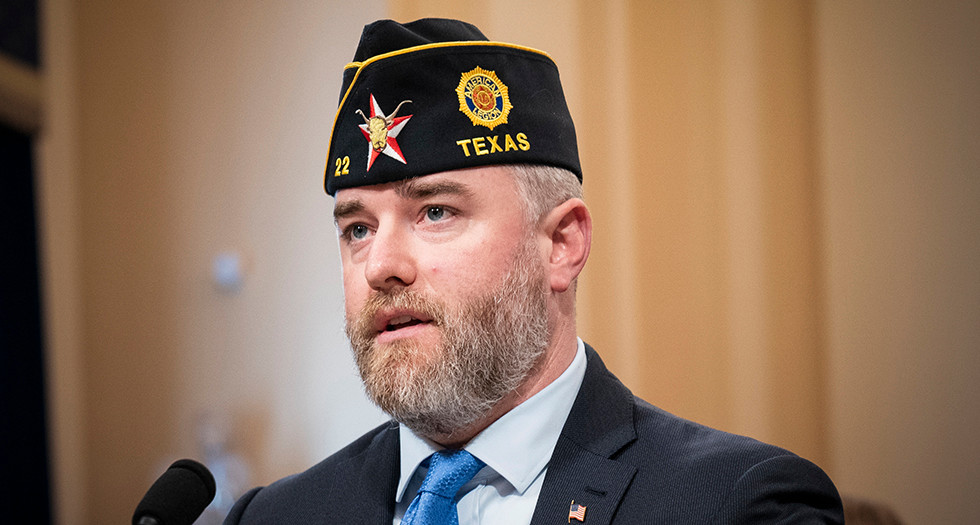
Legion VA&R director testifies on pending legislation that affects mental health and quality of life for veterans.
American Legion Veterans Affairs and Rehabilitation Director Cole Lyle testified before the House Committee on Veterans’ Affairs Subcommittee on Health June 12 on pending legislation that addresses veteran mental health, suicide prevention, caregiver support and more.
Among the legislation that Cole testified of American Legion’s support of was H.R. 2605: Service Dogs Assisting Veterans (SAVE) Act. The SAVES Act would establish a grant program at the Department of Veterans Affairs (VA) to allow Assistance Dogs International (ADI)-accredited nonprofits to apply for grants to train more service dogs to assist veterans. In his opening statement to the committee, Lyle said that while VA’s own research confirms that veterans paired with service dogs experience reduced post-traumatic stress symptoms, decreased suicidal ideation and improved quality of life, “anyone who owns a dog can tell you they can be therapeutic. You don’t need research. When fingers meet fur, magic happens.”
Lyle continued by sharing his personal experience with his late service dog Kaya, a German Shepherd, and the positive outcomes she had on him.
“Because of Kaya, I earned a bachelor’s and a master’s degree. I have a beautiful 2-year-old son. And I sit here today as a veteran advocate in the largest division of the largest veteran service organization in the country because of my service dog. I cannot overstate the power that the passage and implementation of this bill would have on veteran suicide prevention and improved mental outcomes.”
As committee members asked questions about the pending legislation, Lyle was asked about the benefits of service dogs where he reiterated back to his opening statement and emphasized that service dogs are more than what some at the VA may see as clinical tools.
“They also serve as a powerful backstop to veteran suicide because when you are in that point, in that critical crisis point, you feel unloved, you feel alone, and you look down at the dog and you say, ‘I can’t leave the dog. The dog would miss me.’ It provides a sense of purpose that pills and therapy simply won’t ever do,” Lyle said. “In my long history of advocating for this, the amount of veterans that have reached out to me sand said, ‘I saw your story and it prompted me to get my own dog, and if I had not had the dog I would have killed myself.’ Is just super powerful testimony.”
Other bills under consideration that The American Legion supports include:
H.R. 785: Representing Our Seniors Act. As the average age of the veteran population reaches 75 this year, this legislation would include a representative of the National Association of State Veterans Homes on the Geriatrics and Gerontology Advisory Committee of the Department of Veterans Affairs.
H.R. 3400: The Territorial Response and Access to Veterans' Essential Lifecare (TRAVEL) Act seeks to improve health care access, including specialized medical services, for veterans residing in U.S. territories and other underserved areas by authorizing temporary VA physician assignments. “This legislation brings us closer to healthcare equity for veterans no matter where they live,” Lyle said.
H.R. 3643, The VA Data Transparency and Trust Act would improve VA reporting on health care and benefits to enhance oversight, foster collaboration and enable evidence-based improvements in care delivery.
Draft: To direct the Secretary of Veterans Affairs to conduct a study to determine whether RNA sequencing can be used to effectively diagnose PTSD in veterans.
H.R. 2148: The Veteran Caregiver Reeducation, Reemployment, and Retirement Act expands medical, employment and other benefits for individuals serving as family caregivers to veterans. “These steps help veterans remain in home setting at the fraction of the cost of institutional care, and ensure caregivers can reenter the workforce with dignity and purpose,” Lyle said.
- Legislative

